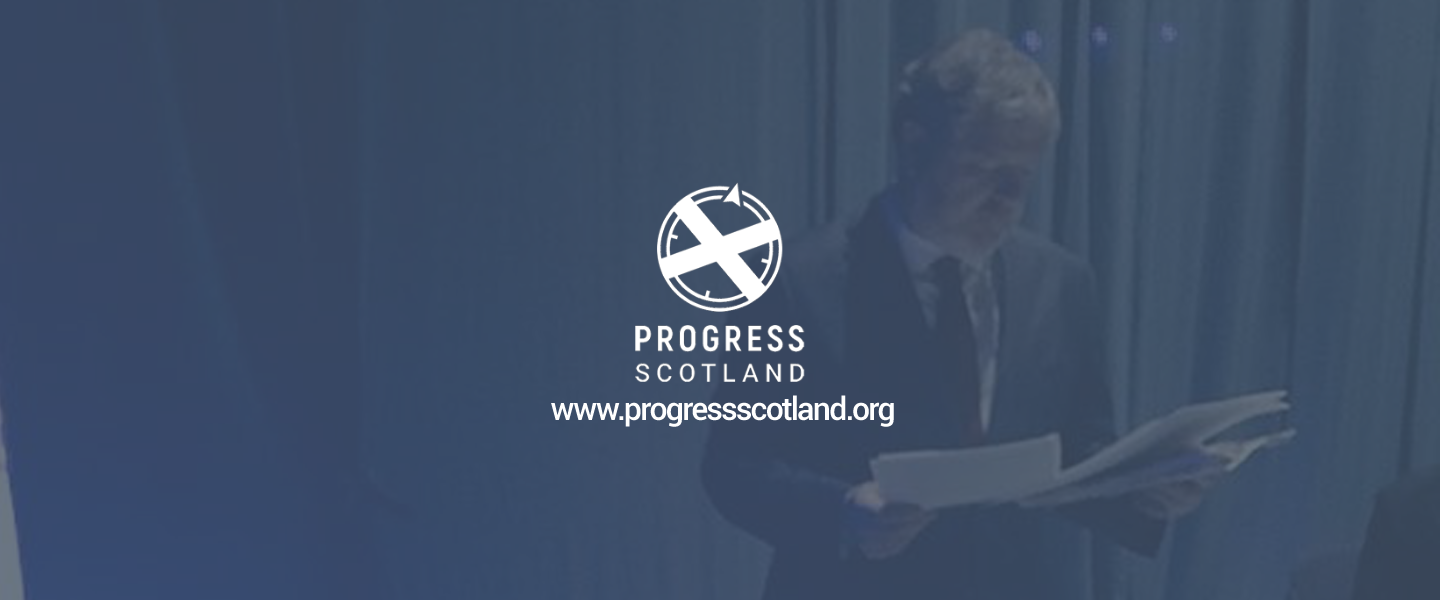
13 - 09 - 2019 / Update
YOU CAN SEE THIS IS GOING TO BE A BIG PROJECT
What Progress Scotland set out to do is to try to identify people who are open minded or undecided about an independent Scotland and then better understand what their needs are, their interests, their concerns, their expectations.
- What is it that is making them undecided?
- What is it about them that makes them open minded?
- What is it that might help change their mind?
- How does that need to be communicated to them?
- Who needs to do that?
- When do we do that?
- Where do we do that?
Now this is a big challenge to try and do this and I think that Progress Scotland is an excellent vehicle to do this. Why? - Because if you were selling dog food you would be doing basic research amongst consumers. So why in politics would we not be doing the same? And I'm sorry, whenever I hear a politician and I have done this in my time, you see them on television going
“Yeah well my feeling on the doorsteps is that…”
Are you serious? - Is that a serious proposition of understanding where the public mood is on things - of course it's not.
What we did was setup Progress Scotland, using an unusual model in which people contribute (thank you to those who do) so that we can commission the polls and research.
With our first poll, we commissioned a larger than normal sample size and most of you know it as a standard opinion poll about a thousand. We commissioned one double that size. Why? because we're trying to identify the undecideds and the open minded. That's going to be a smaller group of that larger group if that makes sense, roughly between three and four hundred people out of that 2000 came into that category and we were able to poll everybody and we had specific questions just for people who were open minded or undecided.
Now you might say, 350 is not a standard sample size and that's correct. With everything, it has a health warning on it. But the point of our long-term plans is that every poll we will be building up a pool of people who fall into that category and we will be able to grow that group. Then ask specific questions of a larger group of. undecideds and open-minded people.
So, that's the first thing that we're trying to do which is to do larger scale opinion polls on a rolling basis and be able to go back to the same group of people and ask questions about what their change in thinking is about the questions we ask them. That's the first part.
The second part of our work is that we are going to be doing focus groups
They have certain characteristics they might all be older; they might well be younger, or they might all be in between voters. They may be people of a certain classification that we know we have problems with in the 2014 referendum.
We know we didn't do tremendously well, or well enough with older voters. We know we didn't do well enough with European citizens. We know we didn't do well enough with people born elsewhere in the UK but not in Scotland. Those would be three groups but there are more who we want to better understand, and we will be able to do that through focus groups.
You can already see this is going to be quite a big project.
Let me give you an example of something that I think that we will be able to do that others are not. If you have a look at our first opinion poll on the subject of 'what do people think are the most important issues?' going forward to the next referendum. What that poll showed was that Europe / Brexit had become the most important issue, I think that's unsurprising. I think unsurprisingly next stop was the economy and after than was the NHS. Those are the three things that people said were going to be the most important things in making their decision.
Given the currency debate, you might say where's currency in all of this?
When we ask people, what you did think were the hierarchy of priorities? Currency was about tenth, just off the top at only about 11% but if you to have a look at the media coverage you would imagine that that would be the biggest issue.
Now that's looking at it at one level, but there's another isn't there?
Probably a lot of people would understand currency has fallen in with the economy and so I think both things are true and obviously the next question is how important people’s views are in determining whether they are prepared to change or not?
The answer is we don't know that - we do know that because we asked the question in the first poll about what people's current preferences would be and the current preferences are.
Between 40 and 50 percent of people support the Yes side's position of 2014 which is retaining the pound. The next most favoured option is retaining the pound at the start and moving towards a Scottish currency when tests have been passed. That's the next most popular. Then after that is the euro and only lastly is moving to a currency as quickly as possible, obviously without tests.
Now can that change? Of course, it can.
Will it change at this point? We don't know.
You would imagine that any political party or any movement that is asking or making that proposal will be campaigning on that proposal to convince an ever growing number of people about the merits of that case, that very well may change things from either side to the argument entirely possible.
But we need to understand that don't we? and who's doing that work? Is the SNP doing that? Is the Yes movement doing that? Is the Scottish Government doing that? Well some people might be doing some of that.
But the one thing that I do know is Progress Scotland will be doing ALL of that.
What I think is also very important and hasn't received a lot of attention which is we are the only vehicle that I am aware of that is trying to encourage people who are on a journey who haven't yet decided where they are at, to get in touch.
Now think about that for a second.
People will obviously identify when they have come to a decision about something. 'I was No now I'm Yes' - we see that and that's great.
How many people do you see go "I was no, I'm not so sure now"
They might have a little bit of it, but people tend not to want to share their indecision or the fact that they're on a journey.
What we're trying to do is communicate with people who are on a journey, find out who they are and build up a relationship with them and as people change, we are able to share their stories.
So if you go on the stories section of this website you will see a whole load of testimonials of people who are on a journey and that should help give encouragement to people when we have the next independence referendum because ironically I think it is those people who are going to be exponentially more persuasive frankly than those who are already commited to independence.
Because if you are an undecided person having something coming along saying "look, I'm like you and I was thinking exactly the same way as you were but now, I've changed my mind and here's why..."
Somebody coming along with a big rosette and lots of stickers and speaking louder about how convinced they are, that is not going to be the most persuasive to the people already not yet persuaded and that is who we need to reach those people who are not.
So, in a nutshell that's what we're going to do with your help

